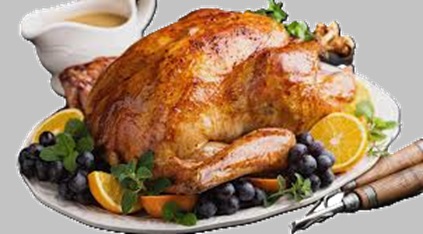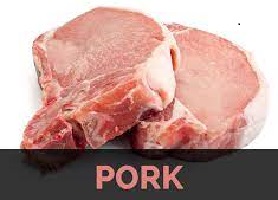Benefits of Eating Turkey
Benefits of Eating Turkey

Turkeys are large birds native to North America, known for their distinctive appearance and role in various cultural traditions, particularly Thanksgiving in the United States.
Table of Contents
Benefits of Eating Turkey
Here are some key characteristics and facts about turkeys:
Species
The domesticated turkey (Meleagris gallopavo) is the most commonly consumed species, although there are several wild species as well.
Appearance
Turkeys are known for their large size, with adult males (known as toms or gobblers) typically being larger than females (known as hens).
They have distinctive feather patterns, including iridescent feathers on their body, a bare, red, fleshy head called a wattle, and a fleshy protuberance called a snood that hangs over their beak.
Habitat
Wild turkeys are primarily found in forests and wooded areas throughout North America. Domesticated turkeys are raised on farms for meat production.
Diet
Turkeys are omnivores, meaning they eat a variety of foods including seeds, nuts, fruits, insects, and small vertebrates.
Domesticated turkeys are typically fed a diet of grains and soybeans.
Behavior
Wild turkeys are social birds that live in flocks, while domesticated turkeys are typically raised in large groups on farms.
Male turkeys are known for their elaborate courtship displays, including puffing out their feathers and spreading their tail feathers to attract females.
Use in cuisine
Turkey meat is a popular protein choice in many cuisines around the world, especially during holidays like Thanksgiving and Christmas.
It is known for its lean protein content and versatility in cooking.
Cultural significance
Turkeys hold cultural significance in various indigenous cultures in North America and have become symbolic of Thanksgiving in the United States, where roasted turkey is often the centerpiece of the traditional Thanksgiving meal.
Conservation
Wild turkeys were once on the brink of extinction due to habitat loss and overhunting but have since made a remarkable recovery due to conservation efforts and reintroduction programs.
Overall, turkeys are fascinating birds with a rich cultural history and play an important role in both ecosystems and human societies.
Benefits of Eating Turkey

Eating turkey offers several health benefits:
High in protein
Turkey is a rich source of lean protein essential for muscle repair, growth, and overall body function.
Low in fat
Compared to other meats, turkey is relatively low in fat, especially if you choose white meat without the skin.
This makes it a suitable option for those watching their fat intake.
Rich in nutrients
Turkey contains essential vitamins and minerals such as b vitamins (including B6 and B12), zinc, phosphorus, and selenium, vital for various bodily functions including immune support, energy production, and DNA synthesis.
Source of selenium
Selenium is a crucial mineral with antioxidant properties that supports thyroid function and helps shield cells from free radical damage.
Promotes muscle growth
The high protein content in turkey supports muscle growth and repair, making it a popular choice among athletes and those who engage in regular exercise.
Supports weight management
Because of its high protein content and relatively low-fat content, turkey can help you feel full and satisfied for longer periods, potentially aiding in weight management and weight loss efforts.
Boosts mood
Turkey contains tryptophan, an amino acid that the body uses to produce serotonin, a neurotransmitter that regulates mood, appetite, and sleep.
Consuming turkey may contribute to improved mood and overall well-being.
Heart health
Turkey is a good source of nutrients like niacin and vitamin b6, which help promote heart health by supporting healthy cholesterol levels and reducing the risk of cardiovascular disease.
However, it’s worth noting that the health benefits of turkey can vary depending on how it’s prepared.
Opting for grilled, baked, or roasted turkey without excessive added fats or sodium will maximize its nutritional value.

Benefits of Eating Turkey: Are turkeys healthier than chicken?
Both turkey and chicken offer health benefits, and which one is “healthier” can depend on various factors such as the cut of meat, preparation methods, and personal dietary preferences.
Here’s a comparison:
Protein content
Both turkey and chicken are excellent sources of lean protein essential for muscle growth, repair, and overall body function.
The protein content is comparable between the two, with slight variations depending on the specific cut.
Fat content
In general, turkey tends to be slightly lower in fat compared to chicken, especially if you choose white meat and remove the skin.
However, the difference in fat content is not significant.
Nutrient profile
Both turkey and chicken are rich in essential nutrients such as b vitamins (including niacin, b6, and b12), zinc, phosphorus, and selenium.
The nutrient profile is similar between the two, offering similar health benefits.
Taste and texture
Taste preferences vary among individuals, so whether turkey or chicken is considered “healthier” in terms of taste is subjective.
Some people prefer the taste and texture of turkey, while others prefer chicken.
Preparation methods
The way that chicken or turkey is prepared can affect how healthy they are.
Grilling, baking, or roasting without excessive added fats or sodium are healthier cooking methods than frying or deep-frying.
Hormone and antibiotic use
Both turkey and chicken may be subject to hormone and antibiotic use in commercial farming practices.
Choosing organic or free-range options can minimize exposure to these substances.
Benefits of Eating a Turkey ~ Are turkeys healthier than chicken?
Ultimately, both turkey and chicken can be part of a healthy diet when consumed in moderation and prepared in a health-conscious manner.
It’s essential to focus on incorporating a variety of lean proteins, fruits, vegetables, whole grains, and healthy fats into your diet for optimal nutrition.


